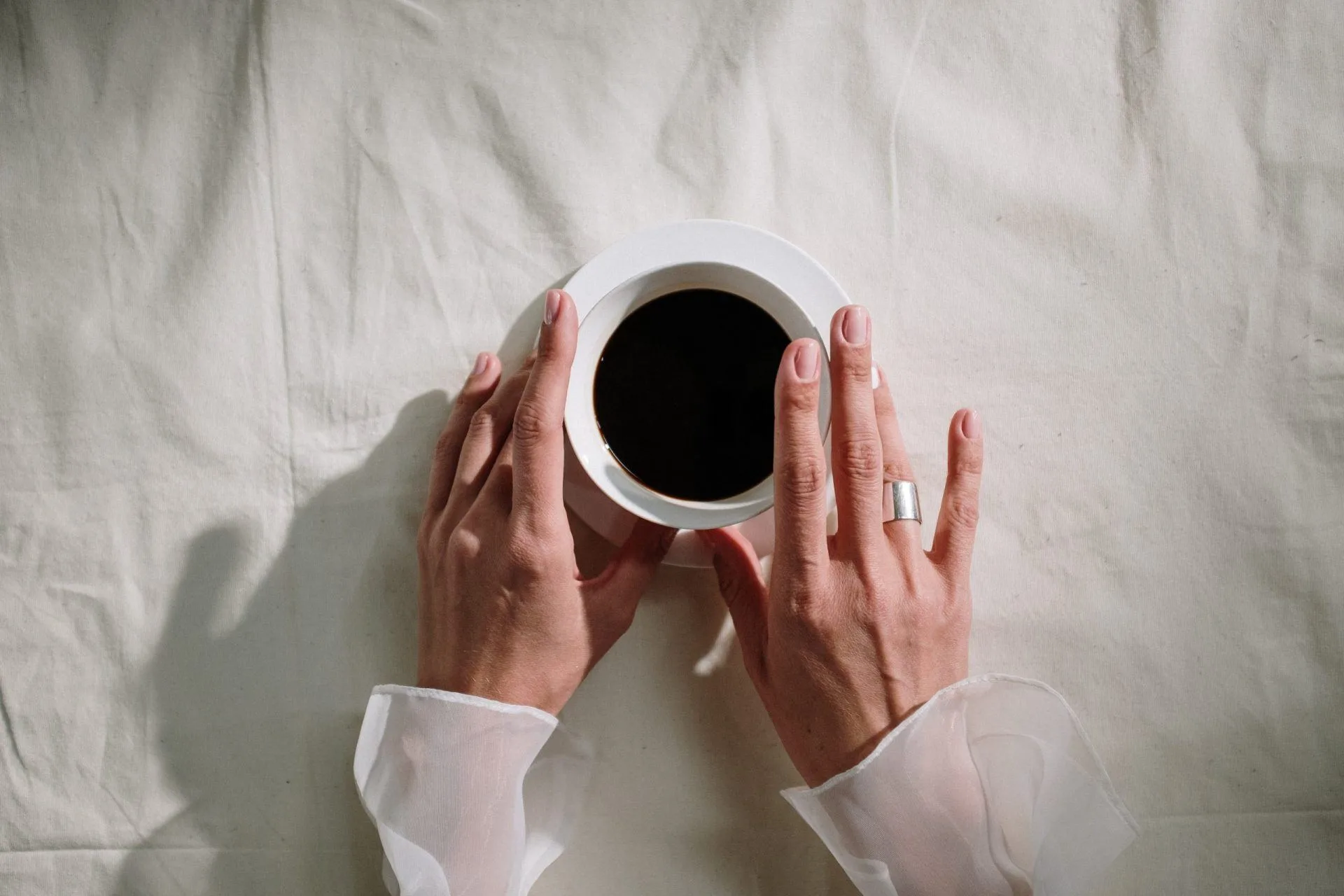How do you prefer to drink your coffee? Are you a plain, black Americano drinker, or do you prefer creamy, rich cappuccinos? Personally, I like my coffee black and strong, just like my Dad. And it might not just be a fluke to share my coffee preferences with my dad.
According to a new study in the journal Scientific Reports, personal preferences when it comes to taste likely come down to DNA. But what does your DNA have to do with how you process caffeine and is drinking black coffee even a healthy choice?
What do your coffee preferences have to do with DNA?
According to this new study, those that had a preference for black coffee were also able to metabolize the caffeine faster. This essentially seems to mean that most of us who drink black coffee associate the taste with increased energy, mental alertness, and clarity.
According to lead study author Marilyn Cornelis, Ph.D., people who metabolize their caffeine in coffee faster tend to learn to appreciate the taste of black coffee. This is purely because they associate that purer, stronger taste with having much stronger psychostimulant effects. These effects become associated with the bitter taste of pure, black coffee.

Photo by Viktoria Alipatova from Pexels
Ultimately, it seems that those of us that only like black coffee prefer it because of its associated benefits. Cornelis explains that it’s actually likely “If you have an affinity for black coffee, it might not be the taste you love but the energy you feel”
You might also prefer dark chocolate
Cornelis and her team found that the patterns were consistent across other food groups too. It extends beyond just coffee. Other foods and drinks that also contain caffeine, albeit in smaller quantities share these patterns. She explains that

Photo by Sena from Pexels
“individuals who have genetic factors contributing to increased caffeine metabolism prefer black coffee over-sweetened coffee, dark chocolate over milk chocolate, as well as unsweetened tea versus sweetened tea”. And this all seems to be linked to the metabolizing of caffeine.
But why does all this even matter? Is black coffee healthy?
Funnily enough, coffee used to be a drink that was reserved for the wealthy. Not so much nowadays, though. Anyone can grab a coffee from a local café or brew it at home. But is drinking black coffee healthier than drinking it in any other form?
Or are all forms of caffeine created equal? If you prefer your coffee black and bitter, you might just be in luck. It seems like drinking black coffee is associated with a lot of health benefits.
It reduces your risk of cancer
Coffee is associated with a reduction of the risk of and even the prevention of some types of cancer; specifically, oral cancer, prostate cancer, liver cancer, and colorectal cancer. It’s not yet known how coffee reduces your risk of cancer, but it’s likely that it has a lot to do with its antioxidant content.
It can improve your mood
It seems like coffee might even help to reduce your risk of depression. This seems to be the case for people that drink 4 or more cups of coffee a day. It is however important to note here that most sources suggest that 400 mg of caffeine per day is an acceptable amount for adults (it works out to about 4 cups). So it’s probably best to keep your coffee drinking to a maximum of 4 cups.

Photo by cottonbro from Pexels
It’s also good to note here that caffeine content can vary greatly between brands of coffee, so do be careful to avoid drinking too much.
It can aid in the management of diabetes
People that drink coffee regularly seem to have a lower risk of developing Diabetes Type 2. Multiple studies have indicated that this is the case. One study found that the risk of developing diabetes type 2 is “35% lower for people who drink six or more cups of coffee per day and 28% lower for people who drink four to six cups”.
Again, it is critical to note that most sources recommend that 400 mg of caffeine per day is an acceptable amount for adults, which works out to about 4 cups.
It’s actually very nutritious
Coffee, particularly when pure and black, is full to the brim with antioxidants. High levels of antioxidants are useful in fighting and preventing cell damage, and this can lead to quite a few health benefits. Black coffee also contains high levels of vitamin B2, caffeine, and magnesium.
What’s the takeaway?
 It seems like the way you choose to drink your coffee is linked to your genes and your DNA. If you’re a black coffee drinker, you’re likely to also be fond of a bit of black tea and dark chocolate. Don’t worry, it doesn’t mean you’re bitter. It just means that your body metabolizes caffeine more efficiently and, thus, associates the sharper, more bitter taste of black coffee with a bigger boost in energy.
It seems like the way you choose to drink your coffee is linked to your genes and your DNA. If you’re a black coffee drinker, you’re likely to also be fond of a bit of black tea and dark chocolate. Don’t worry, it doesn’t mean you’re bitter. It just means that your body metabolizes caffeine more efficiently and, thus, associates the sharper, more bitter taste of black coffee with a bigger boost in energy.
And, as long as you don’t overdo it, drinking coffee seems to be good for you. Of course, black coffee is probably the healthiest way to drink it as, without any milk and sugar to add calories, it’s almost calorie-free at around 2 calories per cup.
References
https://www.mindbodygreen.com/articles/new-research-uncovers-link-between-dna-and-coffee-preferences
https://neurosciencenews.com/genetic-black-coffee-19806/
https://www.webmd.com/diet/health-benefits-black-coffee#1
https://www.feinberg.northwestern.edu/faculty-profiles/az/profile.html?xid=31723
https://www.healthline.com/nutrition/how-much-coffee-should-you-drink
https://www.healthline.com/nutrition/how-much-coffee-should-you-drink#coffees-caffeine-content



![women [longevity live]](https://longevitylive.com/wp-content/uploads/2020/01/photo-of-women-walking-down-the-street-1116984-100x100.jpg)










